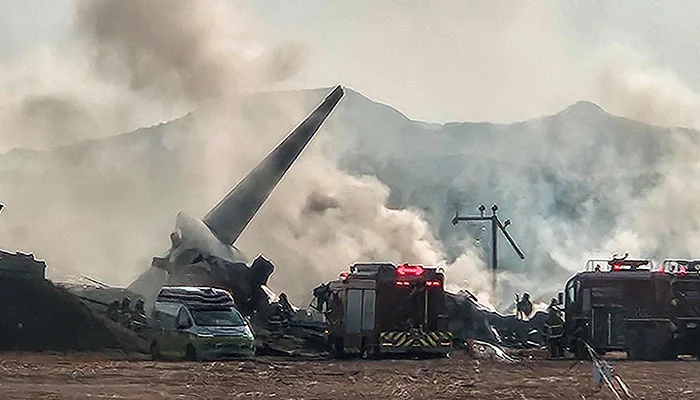A tragic crash of Jeju Air Flight 2216 killed 179 people, and investigations are focusing on a possible bird strike and poor weather as the causes.
Incident Details
- Crash Occurrence:
Jeju Air’s Boeing 737-800, flying from Thailand to Muan Airport, was warned about a bird strike by air traffic control during its first landing attempt. The pilot issued a mayday call and tried to land again, but the plane belly-landed, skidded along the runway, hit a wall, and caught fire. - Casualties and Survivors:
175 passengers and 4 crew members died in the crash. The passengers were all Korean except for two Thais. Two flight attendants, aged 25 and 33, were rescued alive from the wreckage. - Possible Causes:
Investigations are considering bird strikes and bad weather as potential factors. The plane’s flight data recorder and cockpit voice recorder were recovered for further analysis. - Bird Strike Impact:
Bird strikes can damage aircraft engines and pose significant risks during flight. There have been several fatal accidents globally due to bird strikes, such as the “Miracle on the Hudson” incident in 2009. - Rescue Operations and Political Response:
The area was designated a special disaster zone, with hundreds of emergency responders deployed. Acting President Choi Sang-mok convened an emergency meeting and visited the crash site. - South Korea’s Aviation Record:
South Korea’s aviation industry has a strong safety record, and this crash is Jeju Air’s first fatal accident. The deadliest aviation incident in the country occurred in 1983 when a Soviet fighter jet shot down a Korean Air Boeing 747, killing 269 people.



